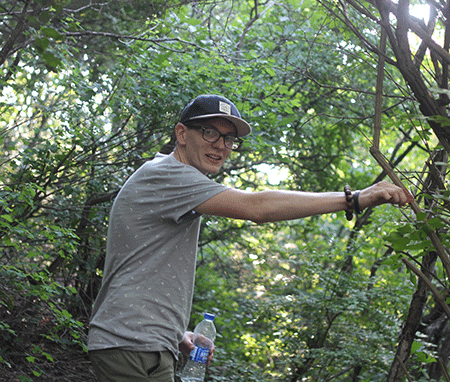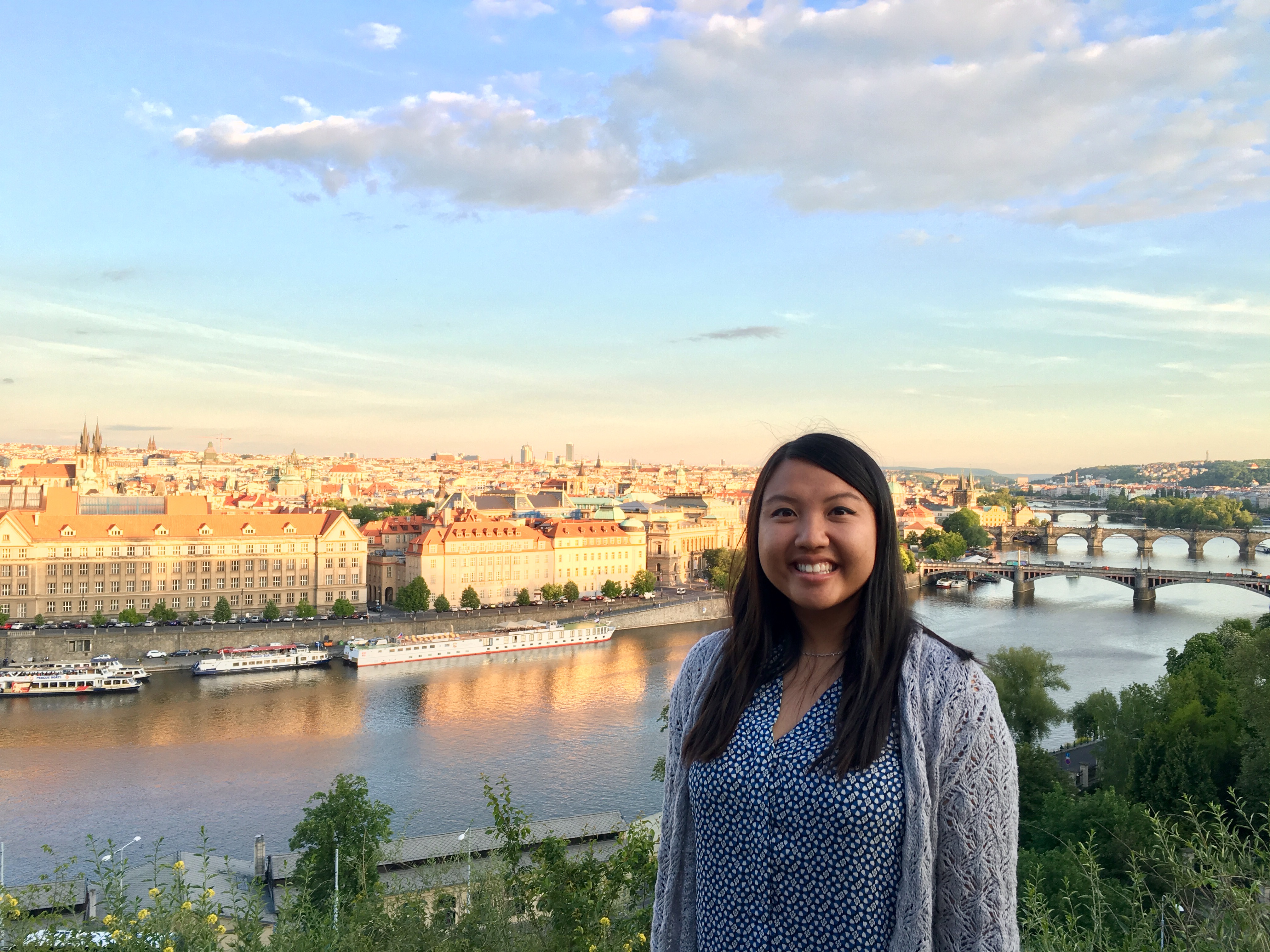For some first-generation students, walking into a college classroom is the end of a long and complicated journey, and for them, traveling to another country for study can seem like an opportunity that’s too far away.
But Arizona State University has created a unique program to help these students find a way to study abroad, and it has been so successful that the university has won a national award for it.
The Planning Scholars program, which provides study-abroad funding and other support for young people who are the first in their families to attend college, has won the 2018 Excellence in Diversity and Inclusion in International Education Award from the Diversity Abroad organization.
Adam Henry, director of ASU’s Study Abroad Office, said the university is honored to win the award, announced Wednesday, and that the scholarship was developed as a direct result of underrepresentation of first-generation students.
“After reviewing the research literature on first-generation students studying abroad, we also created the program around a model of support, and helping participants identify their particular support needs before, during and after their study-abroad experience," he said.
Since 2015, more than 150 students have received the Planning Scholars award from ASU’s Study Abroad Office. Funding is in place for three more groups of 35 students each over the next three years. Students who identify as first-generation on their FAFSA form and have financial need are invited to apply. In the fall 2017 semester, 26 percent of all enrolled students at ASU were the first in their families to go to college, compared with 18 percent a decade ago.
Cody Holt, a senior global studies and global health major from Mesa, didn’t think he would ever study in another country.
“I grew up in a low-income household so that was not financially feasible for us,” he said. “Even the thought of going to college was out … until I got a bunch of scholarships.”
Holt was in the first group of Planning Scholars and did an internship in Beijing in the summer of 2016 through the Study Abroad Office. It was the first time he had left the country, and dealing with homesickness and the language barrier wasn’t easy. But he now talks about his experiences to students at his alma mater, Skyline High School in Mesa.
“I talk about what it means to go to college as someone from a low-income community. How do you navigate things when no one in your family can help you?” he said.
“Study abroad is a microculture of a culture that’s already difficult.”
The Planning Scholars program not only helps pay for travel but also addresses issues that are important to first-generation students, such as not adding extra time to college and helping their families appreciate the value of the experience.
ASU student Catalina Lee had never been to Europe when she started her four-week marketing course in Prague in 2016. "I was blown away when I arrived in the city to see how beautiful and rich in history everything was."
ASU sent about 2,500 students abroad last year, an increase of nearly 40 percent from four years ago, and has been committed to widening access to students from all kinds of backgrounds.
“But within study abroad, unfortunately, the population going is very homogenous and does not look like who is enrolled in colleges today,” HenryHenry also is a faculty associate in the School of Politics and Global Studies and the College of Integrative Sciences and Arts. said. “Our end goal is to make sure the population of students who go abroad looks like the same demographic as who’s enrolled at ASU."
The Planning Scholars program will be offering scholarships to 35 students every year, with 25 funded by the International Studies Abroad organization and 10 by ASU.
In the first few years, the ISA-funded scholarships provided $2,000 toward study-abroad costs for the semester or $1,000 for a summer trip, while the ASU awards were for $4,000.
But some students who received the smaller amounts were not using them, according to Kyle Rausch, assistant director of the Study Abroad Office, who launched the Planning Scholars program as part of his doctoral dissertation. So starting next fall, all the scholarships will be for $4,000.
The program provides more than money. All the scholars attend workshops covering topics such as how to find additional funding, choosing the right program and dealing with homesickness.
“We talk about the importance of finding a program that will fit within your major map because when I was doing my study focused on this population, I saw that they are concerned with getting in and getting out of college quickly,” Rausch said. “So we talk about how this can help them progress toward their degree.”
Most importantly, the Study Abroad Office now helps first-generation students to leverage their unique advantages. All of the scholarship winners go through StrengthsQuest, a personality assessment that highlights each person’s strengths.
Rausch said that in higher education, the assumption is often that first-generation students might need extra help because they lack skills or background knowledge because their parents didn’t go to college.
“This is a change from a deficit model to celebrating what they already have to succeed,” he said. “Because they do. They got to college on their own.
“We work with them to think about the challenges they’ll encounter and how they can rely on their strengths to get past those.”
Growth in self-confidence was a major outcome for the students who traveled, Rausch discovered in his research.
For example, students in the first group of Planning Scholars told Rausch that when tricky problems came up, they typically had to figure out the answers rather than relying on a call to their parents for help.
Catalina Lee said the sense of independence was hugely satisfying when she traveled to Prague in 2016.

Cody Holt did an internship in Beijing in 2016 as part of the Planning Scholars program. He said he never thought he'd get to study in another country.
“The best part was the ability to take control of my time,” said Lee, a senior who visited Hungary, Austria and Poland, including the Auschwitz-Birkenau Memorial, while based in Prague for her international marketing course. “There were a lot of choices, and I really enjoyed that freedom.”
The Planning Scholars workshops were key to getting the most out of the trip for Lee, who was encouraged to set goals before she left and to reflect on the experience afterward.
“I already had a program in mind, but other students had no idea and they supported us in finding the best fit,” said Lee, who was born and raised in Tucson and has a double major in marketing and supply chain management and a minor in anthropology.
“It was important to me the think about study abroad as something more than flying somewhere in the world and having fun.”
As she prepares to graduate in May, Lee said that employers have been very interested in her experience.
“Sometimes students don’t think about how study abroad can affect job hunting,” she said.
Holt said that his study-abroad experience in China also is influencing his job search.
“Ultimately I’d like to work internationally and use my language skills to make a difference,” he said.
The Study Abroad Office offers more than 250 programs in more than 65 countries, and the Planning Scholars initiative is just one way the office has worked to diversify the population of students who travel. Some other ways are:
• Encouraging students to apply for Gilman scholarships. These national awards fund young people who qualify for the Pell grant and who might not otherwise consider study abroad — such as first-generation students, those with disabilities and underrepresented ethnic and demographic groups, including veterans and online students. Last year, ASU had 19 Gilman scholars, the most ever.
• Shorter programs, including “global intensive experience programs,” which are seven- to 10-day trips that are embedded as part of a semester course and occur over break or just after the semester. Students can use their financial-aid packages to pay for them.
• Revised deadlines so students can know whether they have funding before they have to commit to a trip.
ASU's Study Abroad Office has several information sessions scheduled. For details, click here. For information on Gilman scholarships, visit the Lorraine W. Frank Office of National Scholarships Advisement here.
Top image by Deanna Dent/ASU Now
More Local, national and global affairs

Arizona PBS is now free to stream for Prime Video viewers in the US
Arizona PBS is now available for streaming on Amazon Prime Video. A new partnership between PBS and Amazon brings the station’s primary, high-definition broadcast channel, along with the 24/7 PBS…

First-ever Taiwan Symposium at Thunderbird celebrates business, cultural connections
The investment by TSMC and other Taiwanese corporations in Arizona will reap dividends not only in thousands of new jobs but also in strengthened cultural connections and new methods of…

Study shows that trust drives successful market economies — but not in the way you may think
From fueling our cars to fulfilling daily coffee habits, the average U.S. cardholder makes 251 credit card transactions per year, according to Capital One.Each of these transactions are built…



